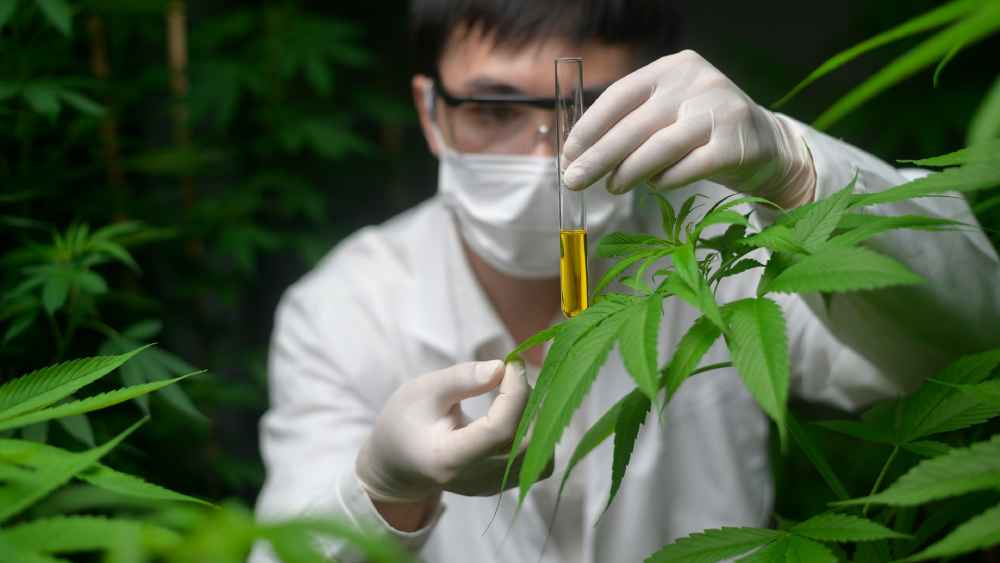In recent years, the cannabis plant has captured global attention, not just for its recreational use, but for its potential therapeutic properties. At the forefront of this green revolution are two compounds: Cannabidiol (CBD) and Tetrahydrocannabinol (THC). As research progresses and societal attitudes shift, understanding these cannabinoids has become increasingly important. This article delves into the world of CBD and THC, exploring their properties, effects, and the ongoing debate surrounding their use.
Contents
- 1 The Cannabis Compounds: CBD vs. THC
- 2 The Endocannabinoid System: How CBD and THC Work
- 3 Potential Therapeutic Applications
- 4 The Entourage Effect: A Synergistic Relationship
- 5 Legal Landscape and Accessibility
- 6 Consumption Methods and Dosage
- 7 Potential Side Effects and Precautions
- 8 The Future of Cannabinoid Research
- 9 Conclusion: A Balanced Perspective
The Cannabis Compounds: CBD vs. THC
CBD and THC are both cannabinoids found in the cannabis plant, but they interact with the human body in distinctly different ways. THC is known for its psychoactive effects, producing the “high” associated with marijuana use. In contrast, CBD is non-intoxicating and has gained popularity for its potential therapeutic benefits without altering consciousness.
The Endocannabinoid System: How CBD and THC Work
The human body contains an endocannabinoid system (ECS), a complex network of receptors that play a role in regulating various physiological processes. THC directly binds to these receptors, particularly CB1 receptors in the brain, leading to its psychoactive effects. CBD, however, doesn’t bind directly to these receptors. Instead, it influences the ECS indirectly, potentially modulating its effects on the body.
Potential Therapeutic Applications
Both CBD and THC have shown promise in various medical applications. CBD is being studied for its potential anti-inflammatory, analgesic, and anxiolytic properties. It has already been approved by the FDA in the form of Epidiolex for treating certain types of epilepsy. THC, despite its psychoactive nature, has shown potential in managing chronic pain, reducing nausea in cancer patients, and stimulating appetite in individuals with HIV/AIDS.
The Entourage Effect: A Synergistic Relationship
Some researchers propose that CBD and THC may work better together than in isolation, a phenomenon known as the entourage effect. This theory suggests that the various compounds in cannabis work synergistically to enhance their individual effects. However, more research is needed to fully understand this potential interaction.
Legal Landscape and Accessibility
The legal status of CBD and THC varies widely across the globe. In many countries, CBD derived from hemp (cannabis with less than 0.3% THC) is legal, while THC remains more strictly regulated. In the United States, for example, hemp-derived CBD is federally legal, but THC is still classified as a Schedule I controlled substance at the federal level, despite being legal for medical or recreational use in many states.
Consumption Methods and Dosage
CBD and THC can be consumed in various forms, including oils, edibles, topicals, and inhalables. The choice of consumption method can affect the onset, duration, and intensity of effects. Dosage is highly individual and depends on factors such as body weight, metabolism, and the condition being addressed. It’s generally recommended to start with a low dose and gradually increase as needed, preferably under medical supervision.
Potential Side Effects and Precautions
While generally well-tolerated, both CBD and THC can cause side effects. CBD may cause fatigue, changes in appetite, and diarrhea in some users. THC can lead to short-term effects such as increased heart rate, dry mouth, red eyes, and impaired memory and coordination. Long-term, heavy use of THC has been associated with an increased risk of psychiatric issues in some individuals.
The Future of Cannabinoid Research
As interest in CBD and THC grows, so does the body of research surrounding these compounds. Scientists are exploring their potential in treating a wide range of conditions, from chronic pain and epilepsy to anxiety and neurodegenerative diseases. However, due to the historical legal status of cannabis, much of the current evidence is based on animal studies or small-scale human trials. Larger, long-term studies are needed to fully understand the effects and potential of these cannabinoids.
Conclusion: A Balanced Perspective
The world of CBD and THC is complex and rapidly evolving. While these compounds show promise in various therapeutic applications, it’s crucial to approach their use with caution and informed decision-making. As research progresses and regulations continue to evolve, we can expect to gain a clearer understanding of the roles CBD and THC may play in health and wellness. For now, individuals interested in using these compounds should consult with healthcare professionals and stay informed about the latest research and legal developments in their area.



